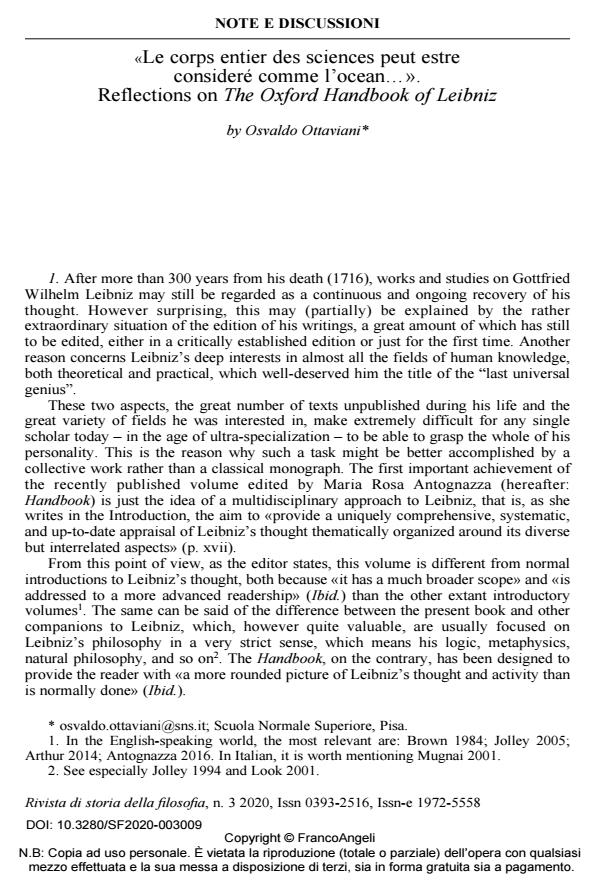«Le corps entier des sciences peut estre consideré comme l’ocean..». Reflections on The Oxford Handbook of Leibniz
Titolo Rivista RIVISTA DI STORIA DELLA FILOSOFIA
Autori/Curatori Osvaldo Ottaviani
Anno di pubblicazione 2020 Fascicolo 2020/3
Lingua Inglese Numero pagine 12 P. 545-556 Dimensione file 84 KB
DOI 10.3280/SF2020-003009
Il DOI è il codice a barre della proprietà intellettuale: per saperne di più
clicca qui
Qui sotto puoi vedere in anteprima la prima pagina di questo articolo.
Se questo articolo ti interessa, lo puoi acquistare (e scaricare in formato pdf) seguendo le facili indicazioni per acquistare il download credit. Acquista Download Credits per scaricare questo Articolo in formato PDF

FrancoAngeli è membro della Publishers International Linking Association, Inc (PILA), associazione indipendente e non profit per facilitare (attraverso i servizi tecnologici implementati da CrossRef.org) l’accesso degli studiosi ai contenuti digitali nelle pubblicazioni professionali e scientifiche.
Osvaldo Ottaviani, «Le corps entier des sciences peut estre consideré comme l’ocean..». Reflections on The Oxford Handbook of Leibniz in "RIVISTA DI STORIA DELLA FILOSOFIA" 3/2020, pp 545-556, DOI: 10.3280/SF2020-003009